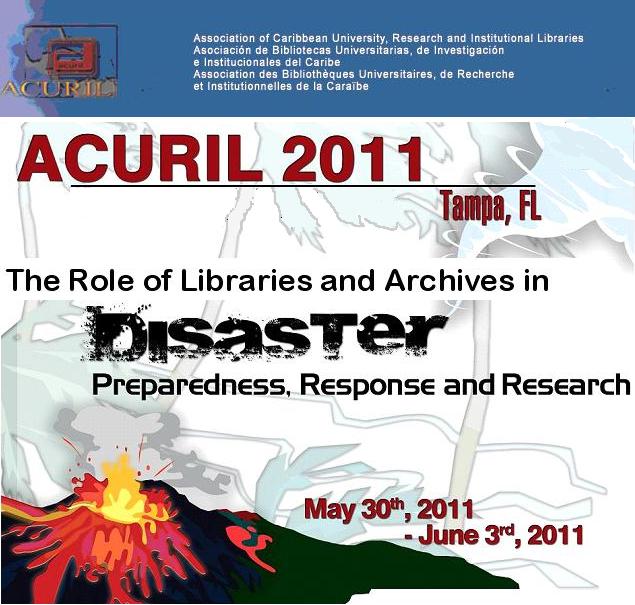Digitization Is Not Enough: Digital Archiving for Disaster Preparedness
Theme
The roles of libraries and archives in disaster research
Start Date
2-6-2011 1:30 PM
End Date
2-6-2011 2:30 PM
Document Type
Presentation
Description
Digitization is often lauded as means of preservation for priceless heritage and cultural materials. However, digitization is useless without archiving. Digital archiving standards and practices continue to evolve. As stewards of our cultural heritage, libraries and archives are entrusted to understand these emerging technologies. Archiving materials implies standards and formats that will never decay and is often an active process of continual migration. Metadata standards such as EAD ( Encoding Archival Description) for finding guides and EAC’s ( Encoding Archival Content ) for people and corporate bodies will play a major role in archiving. METS ( Metadata Encoding Standards ) form the backbone of archiving of digital resource files and are instrumental in validating digital archives. Building upon these standards are international associations which look to certify and validate digital archiving systems. These certifications are more than checks on the software, hardware, or standards compliance. They are a holistic examination of best practices and transparency of operation. While there is not globally recognized certification and no standard has been embraced by all communities, similarities begin to arise when examining the nascent standards and emerging practices. We will review the history of digital archiving, focusing on the major milestones and advancements in both the United States and European archivist groups. Pros and cons of each approach will be provided. Tools for archiving of digital materials will be examined. Finally, recommendations for moving forward with digital archiving and preservation will be provided.
Digitization Is Not Enough: Digital Archiving for Disaster Preparedness
Digitization is often lauded as means of preservation for priceless heritage and cultural materials. However, digitization is useless without archiving. Digital archiving standards and practices continue to evolve. As stewards of our cultural heritage, libraries and archives are entrusted to understand these emerging technologies. Archiving materials implies standards and formats that will never decay and is often an active process of continual migration. Metadata standards such as EAD ( Encoding Archival Description) for finding guides and EAC’s ( Encoding Archival Content ) for people and corporate bodies will play a major role in archiving. METS ( Metadata Encoding Standards ) form the backbone of archiving of digital resource files and are instrumental in validating digital archives. Building upon these standards are international associations which look to certify and validate digital archiving systems. These certifications are more than checks on the software, hardware, or standards compliance. They are a holistic examination of best practices and transparency of operation. While there is not globally recognized certification and no standard has been embraced by all communities, similarities begin to arise when examining the nascent standards and emerging practices. We will review the history of digital archiving, focusing on the major milestones and advancements in both the United States and European archivist groups. Pros and cons of each approach will be provided. Tools for archiving of digital materials will be examined. Finally, recommendations for moving forward with digital archiving and preservation will be provided.


